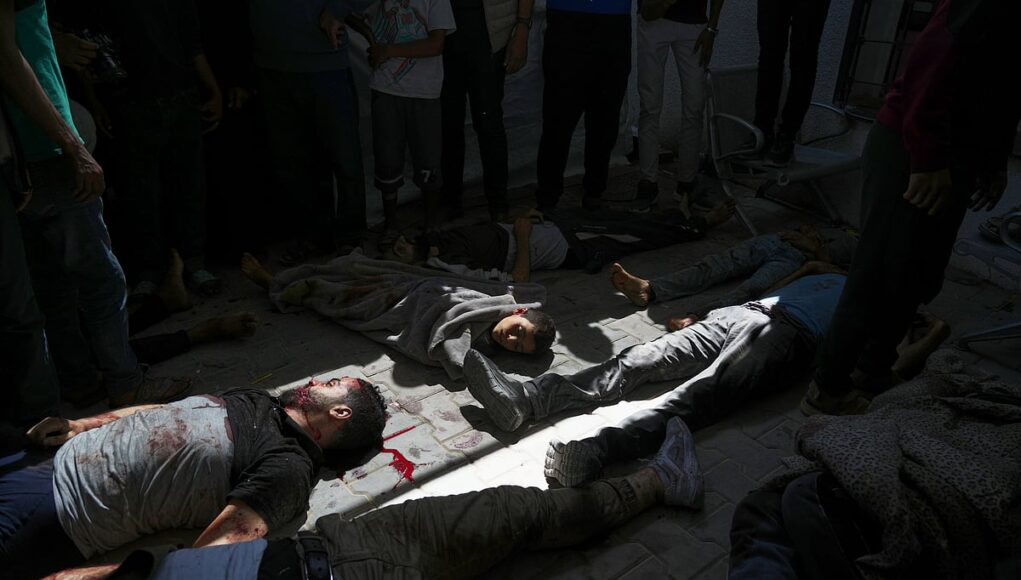Source : NEW INDIAN EXPRESS NEWS
Any escalation of fighting would likely drive up the death toll. And with Israel already controlling some 50% of Gaza, increasing its hold on the territory, for an indefinite amount of time, could open up the potential for a military occupation, which would raise questions about how Israel plans to have the territory governed, especially at a time when it is considering how to implement Trump’s vision to take over Gaza.
Since Israel ended a ceasefire with the Paletinian resistance group Hamas in mid-March, it has unleashed fierce strikes on Gaza that have killed hundreds and captured swaths of territory. Before ending the truce, Israel halted all humanitarian aid into the territory, including food, fuel and water, setting off what is believed to be the worst humanitarian crisis in 19 months of war.
World Central Kitchen, the food charity, said it had run out of supplies after serving 130 million meals in Gaza over 18 months and could no longer offer bread or meals at most of its centers. The group, in social media posts, urged Israel to allow loaded trucks it has waiting at the border to enter Gaza.
Key interlocutors Qatar and Egypt said Wednesday that mediation efforts were “ongoing and consistent.” But Israel and Hamas remain far apart on how they see the war ending. Hamas has said it is prepared to release all of the hostages for a permanent end to the war and a long-term truce with Israel.
Israel has refused to accept this and says it won’t end the war until Hamas’ governing and military capabilities are dismantled, something it has failed to do in 19 months of its war, termed by international organisations as a “genocide.”
Against the backdrop of the plans to completely occupy Gaza, fighting has also escalated between Israel and Iranian-backed Houthi rebels in Yemen.
The Houthis fired a ballistic missile earlier this week that landed on the grounds of Israel’s main international airport. Israel responded with a series of airstrikes over two days, whose targets included the airport in Yemen’s capital, Sanaa.
The Houthis have been striking Israel and targets in a main Red Sea shipping route since the war began in solidarity with the Palestinians. On Tuesday, Trump said the U.S. would halt a nearly two-monthlong campaign against the Houthis in Yemen, after the rebel group agreed not to target U.S. ships.
Israel does not appear to be covered by the U.S.-Houthi agreement.
The Israeli official said the deal came as a surprise to Israel and that it was concerned by it because of what it meant for the continuation of hostilities between it and the Houthis.
Meanwhile, Trump on Wednesday said his administration will soon have more to say on a plan for Gaza — which may include a new push for a ceasefire between Hamas and Israel, the release of hostages and an influx of aid to Palestinians.
“You’ll be knowing probably in the next 24 hours,” Trump told reporters in the Oval Office.
He had stunned many in Israel a day earlier when he declared that only 21 of the 59 hostages remaining in Gaza are still alive. Israel previously insisted the figure stands at 24, although an Israeli official said there was “serious concern” for the lives of three captives. The official said there has been no sign of life from those three, whom the official did not identify. He said that until proven otherwise, the three are considered to be alive. The official, who spoke on condition of anonymity to discuss sensitive details related to the war, said the families of the captives were updated on those developments.
The Hostages and Missing Families Forum, a group representing the families of the captives, demanded from Israel’s government that if there is “new information being kept from us, give it to us immediately.” It also called for Netanyahu to halt the war in Gaza until all hostages are returned. “This is the most urgent and important national mission,” it said on a post on X.
SOURCE :- NEW INDIAN EXPRESS







